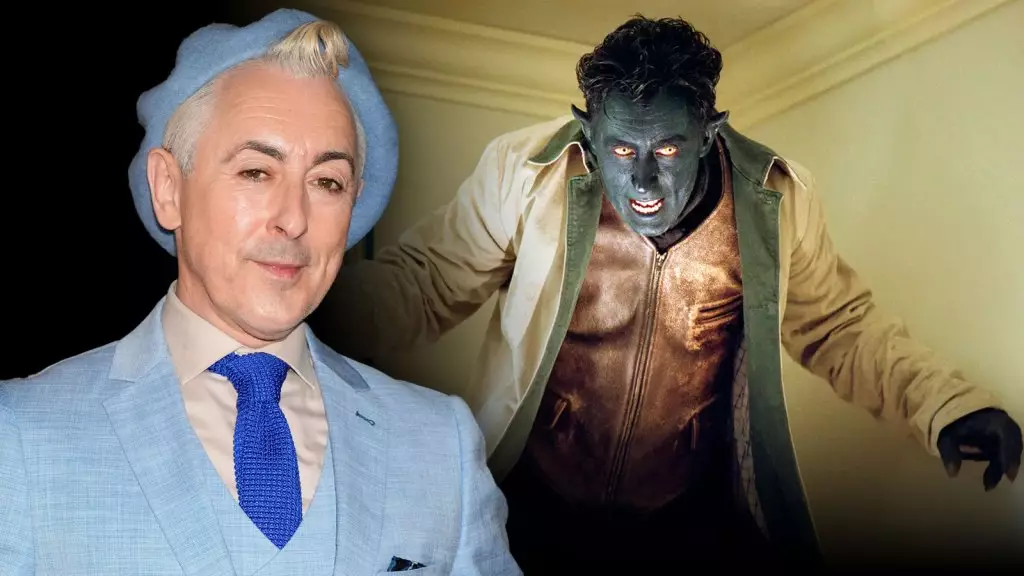Alan Cumming’s recent reflection on reprising his iconic role as Nightcrawler reveals a profound transformation in his relationship with acting. His initial stint in the early 2000s was marred by dissatisfaction and personal challenges, revealing the darker side of Hollywood productions. The experience of filming *X2: X-Men United* was, as he admits, “miserable,” tainted by an environment he describes as “awful for a variety of reasons.” These words hint at a tense, perhaps unhealthy, set under Bryan Singer’s direction—an environment that many actors have now exposed as problematic. Cumming’s honesty about this period exposes the vulnerability behind the superhero persona, reminding us that even those who seem confident and charismatic have faced their share of trials.
The actor didn’t shy away from acknowledging the toxicity he endured, yet his current sentiment towards returning to his role as Nightcrawler is remarkably different. His statement that returning was “really healing” emphasizes growth and resilience. It underscores how revisiting a character from one’s past can serve as a cathartic experience, allowing an individual to reframe their professional journey. Cumming’s openness illuminates not just personal renewal but offers a narrative of hope for others who might carry scars from their formative years in the industry.
A Bold Leap into the Marvel Universe at 60
What makes Cumming’s stories even more compelling is his age-defying enthusiasm. Entering his sixties, he perceives his return to the superhero genre as an achievement, highlighting that talent and passion transcend age. His participation in *Doomsday*—an upcoming Marvel Studios production—signifies a shift in norms, challenging stereotypes about aging actors and their ability to perform daring stunts and action sequences. Cumming’s portrayal of Nightcrawler, a character known for agility and teleportation, is a testament to his adventurous spirit and commitment to craft, defying the common misconception that such roles are limited to younger performers.
His enthusiasm about working with Marvel reflects a broader industry shift towards inclusivity and valuing diverse age groups. Moreover, Cumming emphasizes the supportive environment on set, contrasting sharply with his past experiences. Describing the crew as “really nice” and noting how he efficiently managed his scenes—often in quick succession due to scheduling constraints—illustrates his professionalism and zest for the role. His decision to film scenes using green screens and quick setups showcases adaptability, reinforcing that passion keeps performers resilient regardless of age or difficulty.
The Power of Redemption and Personal Growth
Cumming’s return to Nightcrawler signals more than just a career move; it’s a narrative of personal redemption. His acknowledgment that the experience was “really healing” underscores how facing and overcoming past trauma can lead to empowerment. In an industry often criticized for its toxicity, his story is a beacon of hope—demonstrating that it’s possible to find joy and fulfillment after dark periods of professional dissatisfaction.
His willingness to revisit a character from an era marked by struggle reveals a commendable openness to change and growth. It challenges the stigma that past hardships permanently taint an artist’s journey. Instead, Cumming’s experience exemplifies that reconciliation with one’s history can open new doors and create opportunities for renewed passion. As he prepares to return to the Marvel universe, Cumming exemplifies how embracing growth and change can redefine an artist’s legacy, transforming past pain into future promise.

